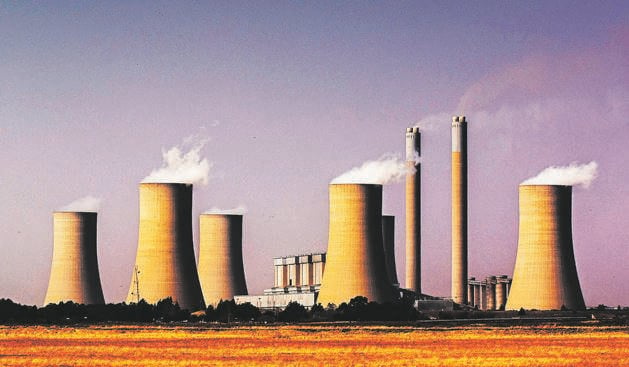
The medium-term budget policy statement delivered by Finance Minister Tito Mboweni on Wednesday spelt out tough times in our future.
Mboweni spent 14% of the speech drawing attention to the country’s dire economic state, and the need to stay the course as we collectively work to help the withering economy recover.
It was a heavy lift from the beginning.
And rightly so – the day before the speech, the Quarterly Labour Force Survey reported that, at 29.1%, unemployment is now at its highest since 2008.
The speech laid out more unnerving facts.
Revenue collection was down by R15.4 billion and the expenditure ceiling for the next few years will rise to upwards of R16 billion.
Expenditure on interest alone will cost the fiscus R1 billion a day and gross national debt, which has doubled since 2008, is approaching 60%.
This is a danger zone by global standards.
The glaring challenge for Mboweni was state-owned enterprises (SOEs), with Eskom at the centre, while Denel and SAA were among the notable growth spoilers.
By design, SOEs are responsible for catalysing growth while balancing the social tasks of the state.
Currently, these SOEs are liabilities rather than growth catalysts.
Established in 1924, the objective of setting up Eskom was to help South Africa’s economy to join the world’s leading industrialised nations.
The industrial future hinged on a reliable, low-cost power supply and, closely related, the establishment of the iron and steel industry.
Since the industrial momentum of the 1920s, the manufacturing sector expanded across the country for the next 40 years, mopping up most unemployed (white) South Africans.
Since 1994, the democratic state has made efforts to revitalise the industrial sector, but has failed spectacularly.
The manufacturing sector has shrunk by half since 1994.
Having lost 30 000 jobs in the third quarter of this year, it is one of the sectors that is constantly shedding rather than creating jobs.
The poor performance of the manufacturing sector is linked to the poor management of Eskom.
Government’s rising debt due to its attempt to bail Eskom out is just one side of the coin – manufacturing businesses that rely on Eskom for production face double tragedies.
The first is that they are unable to produce as they should due to extended downtime due to Eskom’s recurrent power cuts.
The second tragedy is rather ironic – the rising cost of electricity requires businesses to generate more profits to pay their higher power bills.
Such dilemmas imposed on businesses will not be resolved through business incubation programmes or access to credit.
Besides, genuine businesses are established with the principle of self-sustainability so that they do not have to rely on state support for survival.
The deindustrialisation momentum is therefore chained to Eskom, which will remain a risk for the foreseeable future.
In short, and in all probability, Eskom is single-handedly obstructing the country’s desperately needed growth.
It is making a tripartite demand.
First to government to spend money it does not have. Second to households to pay more for less electricity. Third to businesses to pay more for producing less.
It is impossible for South Africa’s economy to industrialise in any meaningful way under such conditions.
The current efforts to address Eskom’s poor management are aimed at simply getting out of debt.
The pressure of such management on households and businesses is largely in the shadows of public analysis.
In the final analysis, while there is no quick fix, the Eskom situation goes beyond getting out of government’s debt to restoring affordable electricity for businesses and households.
Debt-based solutions might remove some constraints to growth, but the high cost of electricity will still trap the economy when it comes to low economic production.
Musyoka is a senior researcher at the Centre for the Advancement of Scholarship at the University of Pretoria
Do you agree that SOEs are stopping SA from achieving economic stability?
SMS us on 35697 using thekeyword ELECTRICITY and tell us what you think. Please include your name and province. SMSes cost R1.50. By participating, you agree to receive occasional marketing material




 Publications
Publications
 Partners
Partners









